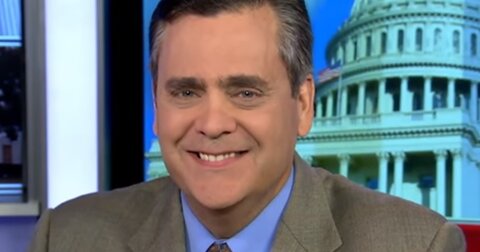Michigan makes list of ‘Anti-Free Speech’ states
Amicus brief Missouri v. Biden puts state on collision course with First Amendment
Michigan appears on a new list of anti-free speech states compiled by a prominent George Washington University law professor.
Johnathan Turley’s end-of-the-year list of “anti-free speech states,” includes states that signed an amicus brief supporting the Biden administration’s position in Missouri v. Biden, a case currently before the Supreme Court. The administration is defending its past actions to combat "harmful content" and "misleading information” on the internet, much of which relates to policies on COVID-19 lockdowns and vaccination mandates. Michigan made Turley’s “definitive list” by being one of those states.
Michigan leaders also took an unprecedented anti-free speech position in a 2020 state executive order (now rescinded) that required retail stores to “refrain from the advertising or promotion of goods that are not groceries, medical supplies, or items that are necessary to maintain the safety, sanitation, and basic operation of residences.”
According to Turley:
For years, we have discussed the alarming shift in the Democratic party on free speech, with candidates running on pledges to censor opposing views and politicians supporting backlisting and censorship on social media. Many citizens oppose such efforts to restrict their rights under the First Amendment but are unaware of the work of their representatives to limit free speech. Now, a filing in the Supreme Court supporting censorship efforts by the Biden Administration has supplied a handy list of the anti-free speech states for citizens.
Recent efforts by governments to step up their censorship activities are not confined to Democratic administrations. Republican-led states have also taken actions that raise potentially troubling free speech concerns.
In the case of Missouri v. Biden, the Attorneys General of Missouri and Louisiana, along with several private citizens, claimed that numerous federal officials coerced social media platforms into censoring online postings in violation of the First Amendment. The private citizens who brought the lawsuit included a group of doctors and activists who criticized the COVID-19 lockdowns and vaccine mandates.
This is an unusual First Amendment case because the constitutional free speech guarantee applies to governments and government officials, but not to private businesses. Thus, the case centers on how social media companies may have been coerced to block or censor the accounts of private citizens.
The district court said the federal government “used meetings, emails, phone calls, follow-up meetings, and the power of the government to pressure social-media platforms to change their policies and to suppress free speech.” Accordingly, the district court found that the plaintiffs had proven a likelihood that they would win at trial and imposed an injunction against the federal government to prevent further conduct that may violate the free speech rights of the plaintiffs and others. It wrote the case “arguably involves the most massive attack against free speech in United States’ history.”
A federal appeals court overruled the trial court on some points but found that the plaintiffs’ rights likely were violated by the ways that White House officials, the Surgeon General, the Centers for Disease Control and Federal Bureau of Investigation reached out and encouraged the private social media companies to block the accounts of critics of COVID-19 lockdown and vaccine policies.
The case is currently on appeal to the U.S. Supreme Court, which is where the 23 states filed their amicus brief. Other states that signed on to the brief are Arizona, California, Colorado, Connecticut, Delaware, Hawaii, Illinois, Maine, Maryland, Massachusetts, Minnesota, Nevada, New Jersey, New Mexico, New York, Oregon, Pennsylvania, Rhode Island, Vermont, Washington, Wisconsin and the District of Columbia.
The brief filed by Michigan and the other states “lauds past efforts of these states to combat ‘harmful content’ on the Internet and to protect the public from ‘misleading information’ through partnerships with social media companies,” Turley notes.
The Court of Appeals, however, took a much less favorable view of government efforts to censor misleading information on the internet when it concluded that "the district court was correct in its assessment—'unrelenting pressure' from certain government officials likely 'had the intended result of suppressing millions of protected free speech postings by American citizens.'"
Michigan is siding with the federal government in support of governmental powers to censor online content on hot-button policy subjects like the COVID–19 lockdowns. In practice, the line seems very blurry between “harmful content” and information that government officials decide is politically inconvenient. Michigan is now squarely on the side of expansive powers for governments to pressure social media companies into censoring what the government does not want the public to see or know.
Michigan Capitol Confidential is the news source produced by the Mackinac Center for Public Policy. Michigan Capitol Confidential reports with a free-market news perspective.

